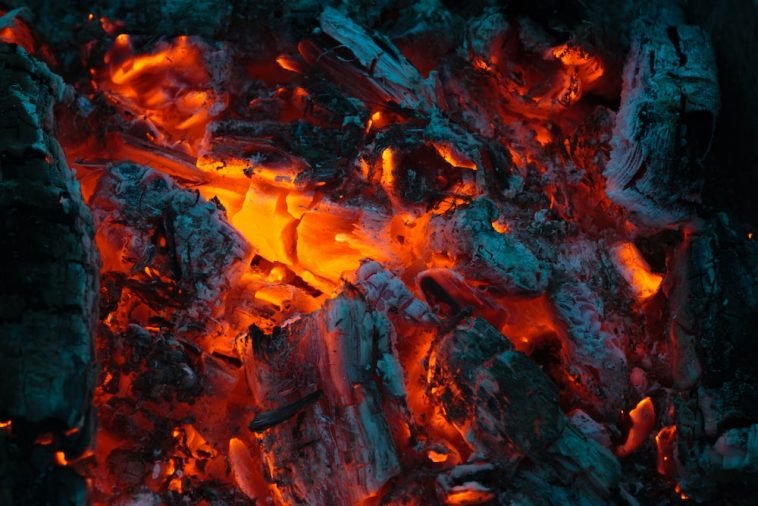Introduction.
Starting a charcoal business in Nigeria can be a smart way to make money, especially with the growing demand for alternative energy sources.
Charcoal is widely used for cooking, heating, and even industrial purposes. It’s affordable, easy to store, and, most importantly, a renewable energy source when done right.
With the increasing cost of gas and electricity, many people turn to charcoal as a reliable option, creating a strong market for it.
If you’re looking for a profitable business with relatively low start-up costs, this might be your answer.
In this article, I’ll break down everything you need to know about starting a charcoal business in Nigeria, from sourcing and production to marketing and logistics. Let’s jump in.
Why Charcoal?
Charcoal is one of the most used fuels in Nigeria and beyond. Millions of Nigerians use charcoal daily for cooking and heating, while it is also exported to other countries like Germany, the UK, and the Middle East, where it’s used for barbecue, shisha, and industrial purposes.
According to data from Nigeria’s Export Promotion Council, charcoal export is worth over $70 million annually. This shows that there’s a ready market for the product.
What makes charcoal even more appealing is its affordability and simplicity. Unlike some businesses that require advanced knowledge or heavy machinery, the charcoal business is relatively straightforward.
If you understand how to source or produce quality charcoal and connect with the right buyers, you’re already on the path to success.
How Do I Start a Charcoal Business in Nigeria?
1. Understand the Business
Before jumping in, take time to understand the charcoal market. Research who uses charcoal, where to find suppliers or materials for production, and how much you can charge. For example:
- Domestic Market: This includes restaurants, food vendors, and households.
- Export Market: Charcoal exporters sell in bulk to international markets, where there’s a steady demand for high-quality hardwood charcoal.
You can even visit local markets or export hubs to observe how the business runs.
2. Choose Your Area of Focus
There are three main ways to get involved:
- Charcoal Production: This involves sourcing raw wood and converting it into charcoal. It requires space and an understanding of the carbonization process.
- Charcoal Distribution: Buying from producers and selling to retailers or consumers.
- Charcoal Exportation: Selling charcoal to buyers in other countries. This option requires meeting export quality standards and working with export agencies.
3. Source Your Materials
For those interested in production, you’ll need hardwoods like acacia, oak, or mahogany because they burn longer and produce less smoke. These are common in many parts of Nigeria, especially in states like Ogun, Ondo, and Ekiti.
If you’re distributing, you’ll need to connect with reliable producers who can supply quality charcoal consistently.
For export, check international buyers’ specifications and find local producers who can meet those standards.
4. Get the Necessary Permits
Charcoal export requires certain permits and certifications. Even for local distribution, you may need licenses depending on your location. Key documents include:
- Export License: Issued by the Nigerian Export Promotion Council (NEPC).
- NXP Form: For exporting goods through Nigerian banks.
- Phytosanitary Certificate: Ensures your charcoal meets international standards.
Check with local authorities to ensure compliance.
5. Set Up Your Space
Whether you’re producing or storing charcoal, you’ll need a suitable location. For production, find a space far from residential areas because of the smoke generated during carbonization. A warehouse or open land is ideal for storage and sorting.
6. Market Your Product
Marketing is crucial for success. For domestic sales, connect with food vendors, supermarkets, or restaurants. You can also advertise through social media platforms like Instagram or WhatsApp.
If you’re exporting, work with agents or join online platforms like Alibaba to connect with international buyers. Ensure your product packaging is neat and properly labeled—it makes a big difference.
7. Focus on Quality
Quality determines your success in this business. Poor-quality charcoal burns quickly or creates too much smoke, which can ruin your reputation.
Make sure your product is dry, clean, and consistent in size. For export, adhere to buyer specifications, which often include moisture content and packaging standards.
8. Handle Logistics
Efficient transportation is key. Locally, you can deliver directly to buyers or use third-party delivery services.
For export, work with a reliable shipping company and ensure proper documentation for a smooth process. Costs can vary depending on your location and the destination, so factor this into your pricing.
Tips for Success
- Network: Build relationships with suppliers, buyers, and other players in the charcoal industry. This helps you stay informed and find new opportunities.
- Be Consistent: Buyers, especially exporters, value reliable suppliers who can meet deadlines and deliver quality products.
- Monitor the Market: Stay updated on pricing trends, both locally and internationally. Prices can vary depending on seasons or demand.
FAQs
Q: How much capital do I need to start?
A: You can start small with as little as ₦100,000 for local sales or invest millions if you’re focusing on exportation. Start small and scale as you grow.
Q: Is charcoal production legal in Nigeria?
A: Yes, but you’ll need to comply with environmental regulations to avoid fines or legal issues. Always work with legal sources of wood to prevent deforestation.
Q: What is the profit margin in the charcoal business?
A: Profit margins range from 30% to 50% depending on your scale and market. Exporters often earn more due to higher prices abroad.
Q: Can I export without an agent?
A: Yes, but working with an experienced export agent can make the process smoother, especially for beginners.
Final Thoughts
Starting a charcoal business in Nigeria is a promising venture with plenty of room for growth. With the right knowledge, connections, and commitment to quality, you can build a profitable business that meets the growing demand for this essential product.
What’s your take—do you see yourself starting small or going big with exports?





GIPHY App Key not set. Please check settings